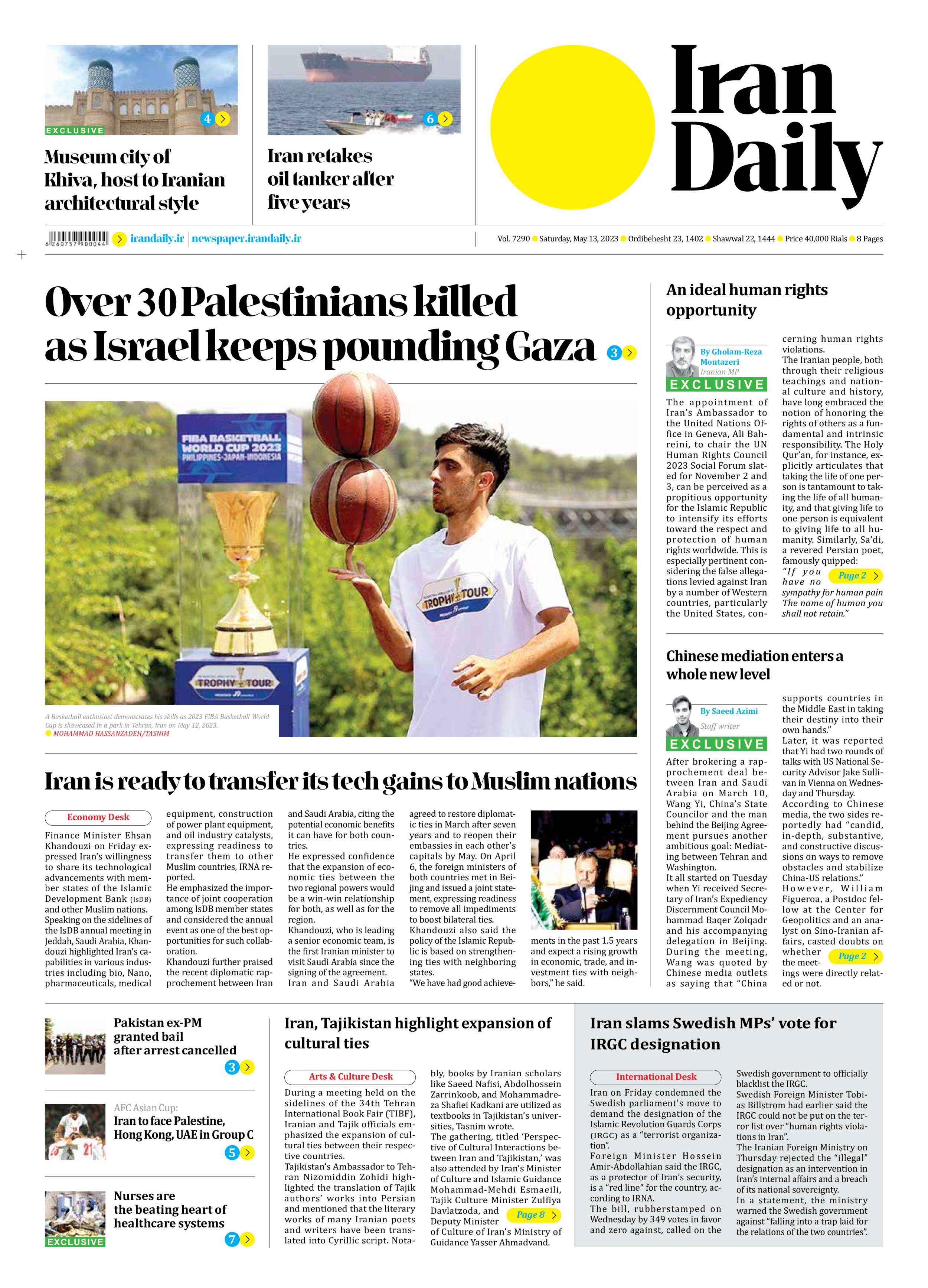
An ideal human rights opportunity
By Gholam-Reza Montazeri
Iranian MP
The appointment of Iran’s Ambassador to the United Nations Office in Geneva, Ali Bahreini, to chair the UN Human Rights Council 2023 Social Forum slated for November 2 and 3, can be perceived as a propitious opportunity for the Islamic Republic to intensify its efforts toward the respect and protection of human rights worldwide. This is especially pertinent considering the false allegations levied against Iran by a number of Western countries, particularly the United States, concerning human rights violations.
The Iranian people, both through their religious teachings and national culture and history, have long embraced the notion of honoring the rights of others as a fundamental and intrinsic responsibility. The Holy Qur’an, for instance, explicitly articulates that taking the life of one person is tantamount to taking the life of all humanity, and that giving life to one person is equivalent to giving life to all humanity. Similarly, Sa’di, a revered Persian poet, famously quipped:
“If you have no sympathy for human pain
The name of human you shall not retain.”
These examples amply demonstrate the deep-rooted and ingrained respect for human rights in Iran’s religious, cultural, and national education. In fact, Iranian scholars and writers have been at the forefront of advancing human rights in history, a legacy that is firmly entrenched in their Islamic and cultural heritage.
Given Iran’s extensive religious and cultural heritage, the appointment of the Iranian envoy to chair the upcoming event in Geneva presents a favorable opportunity to showcase the country’s true stance on human rights, based on unimpeachable facts rather than the unfounded allegations of foreign media outlets. Through this lens of truth, Iran can present an honest portrayal of its human rights record, which can be compared to the human rights records of certain European nations as well as the United States.
Simultaneously, this opportunity serves as a platform for highlighting the human rights abuses rampant in Western countries, who frequently conceal their violations through sophisticated media campaigns and psychological warfare, thereby manipulating public perceptions.
Furthermore, within Iran, intellectuals, artists, and legal professionals can harness their collective potential to generate content for both domestic and international conferences, designed to retrieve religious, literary, and historical texts vthat praise social responsibility and a staunch commitment to human rights.
The Islamic Republic’s newfound responsibility in the realm of human rights presents a unique opportunity for constructive dialogue with other nations, aimed at dispelling any misunderstandings and misconceptions regarding Iran, and disseminating exemplary Iranian and Islamic models of human rights observance.
In light of this global responsibility, Iran stands to gain immensely from the many opportunities now afforded to it. It is therefore incumbent upon Iranian officials not to squander this rare chance, but rather, to utilize it to the fullest extent possible. Doing so will enable the Iranian authorities to outline the true level of human rights observance in Iran, as well as to expose instances of human rights violations committed by other nations. Indeed, these human rights dialogues hold great promise for elevating the observance of human rights across the world.







